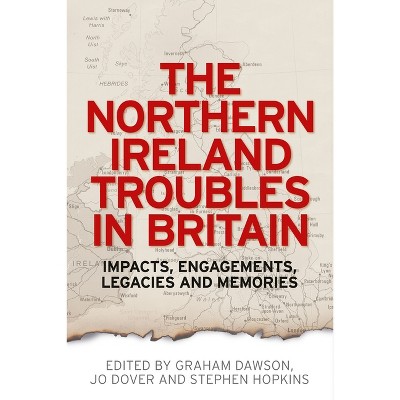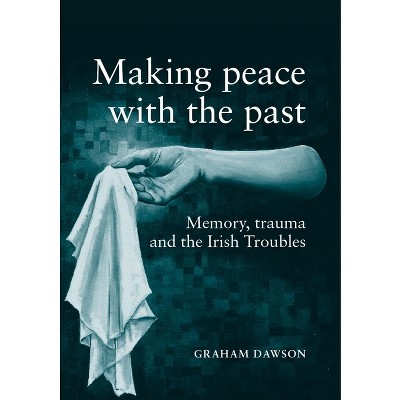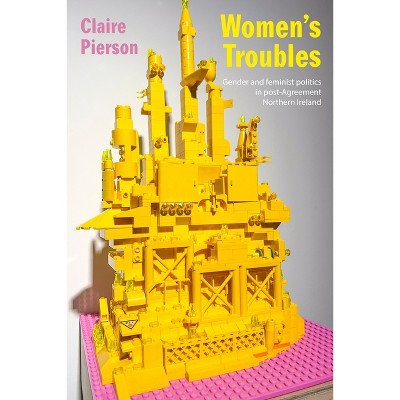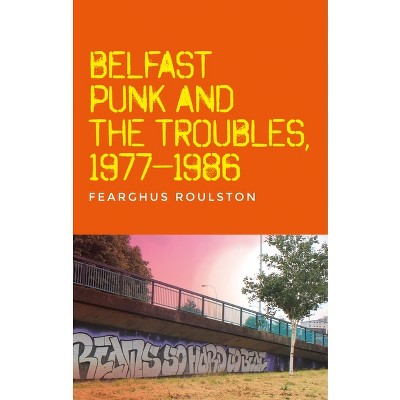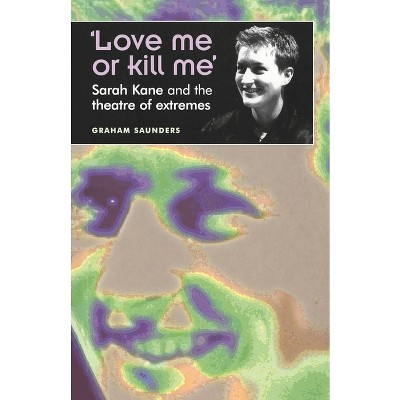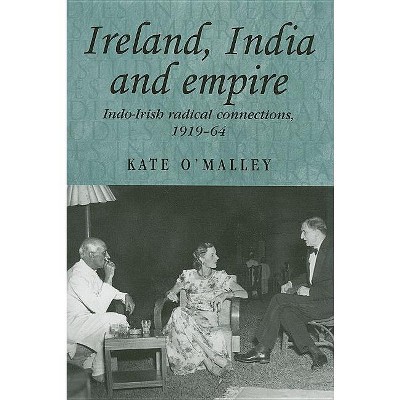Sponsored

Afterlives of the Troubles - by Graham Dawson (Hardcover)
Pre-order
Sponsored
About this item
Highlights
- Focusing on experiential life stories across a range of forms and practices, this book investigates subjectivity, culture and the cultural politics of representation as a neglected dimension of conflict transformation in the Northern Irish peace process.
- About the Author: Graham Dawson is Visiting Professor in INCORE (International Conflict Research Institute) at UlsterUniversity.
- 344 Pages
- History, Europe
Description
About the Book
Focusing on experiential life stories across a range of forms and practices in the lengthening 'afterlife' of the Troubles, this book explores the complex temporal dynamics of 'post-conflict' subjectivities and the cultural politics of their representation, seen as a neglected dimension of conflict transformation in the Northern Irish peace process.Book Synopsis
Focusing on experiential life stories across a range of forms and practices, this book investigates subjectivity, culture and the cultural politics of representation as a neglected dimension of conflict transformation in the Northern Irish peace process. Interdisciplinary critical perspectives from historical cultural studies, oral history and popular-memory theory inform close interpretive engagement with life stories in their cultural, historical and geographical contexts. This enables exploration of the complex temporal dynamics of 'post-conflict' subjectivities in the lengthening 'afterlife' of the Troubles, where feelings attached to conflict experiences are not 'past' but haunt the present, and memory-work carries future-oriented desires for truth, justice and reconciliation. Through case studies responding to the evolving peace process through this prism of life-storytelling, Afterlives maps a contested history of legacy policy-making and approaches to 'dealing with the past', from devolution in 2005-7 through to the Legacy and Reconciliation Act of 2023.From the Back Cover
'This important book provides scholars and practitioners with new ways of understanding the enduring effects of the conflict and the possibilities for conflict transformation. It repudiates the discourse of moving on and shows the complex dynamics involved in the work of reconciliation and building peace in the long term.' Claire Hackett, Falls Community Council
'This excellent book offers a fascinating account of the role of life narratives in negotiating the legacy of the Troubles. A worthy sequel to Dawson's landmark Making Peace with the Past? (2008), Afterlives of the Troubles should be required reading for anyone interested in post-conflict transitions.' Ann Rigney Afterlives of the Troubles develops a pioneering critical investigation of subjectivity, culture and the cultural politics of representation as a neglected dimension of conflict transformation in the Northern Irish peace process. Focusing on experiential life stories across a range of forms and storytelling practices, from oral history and published memoir to personal narratives of justice campaigners and collections of community-based storytelling projects, the book investigates the continuing emotional charge and felt significance of conflict memories at an increasing distance from the happenings of the Troubles. In this lengthening temporal 'afterlife' of conflict, conflict experience is not 'past' but haunts the present, and memory carries future-oriented desires for truth, justice and reconciliation. Through detailed interpretive engagement with selected life stories set in their cultural, historical and geographical contexts, the book explores the complex temporal dynamics of 'post-conflict' subjectivities in their endeavour to make sense of remembered experiences of conflict and the feelings attached to them both at the time and afterwards. Researched and written over fifteen years as a series of case studies responding to developments, obstacles and contestations in the evolving peace process seen through this prism of life-storytelling, Afterlives maps a contested history of legacy policy-making and cultural practices engaged in 'dealing with the past', from the establishment of devolution in 2005-7 through to the Legacy and Reconciliation Act of 2023. It is the first book-length investigation into conflict transformation in Northern Ireland from interdisciplinary critical perspectives rooted in historical cultural studies, oral history and popular memory theory.Review Quotes
'This important book provides scholars and practitioners with new ways of understanding the enduring effects of the conflict and the possibilities for conflict transformation.
The life stories at its centre are movingly interpreted using new frameworks of analysis. It is an exploration that opens up new fields of enquiry for future studies of individual and collective memories of the conflict. The book repudiates the discourse of moving on and shows the complex dynamics involved in the work of reconciliation and building peace in the long term.' Claire Hackett, Falls Community Council
About the Author
Graham Dawson is Visiting Professor in INCORE (International Conflict Research Institute) at Ulster
University.
Shipping details
Return details
Trending Non-Fiction






